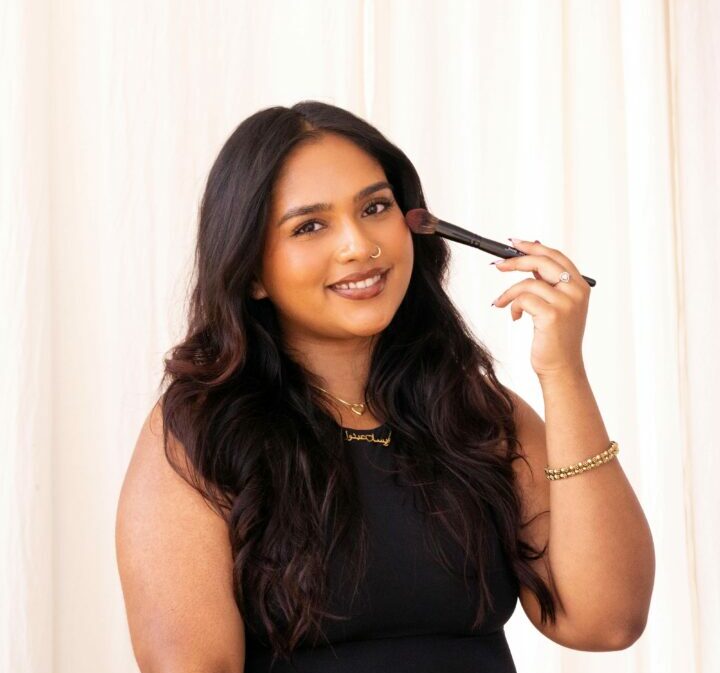We caught up with the brilliant and insightful Mercury Stardust a few weeks ago and have shared our conversation below.
Mercury, we’re thrilled to have you sharing your thoughts and lessons with our community. So, for folks who are at a stage in their life or career where they are trying to be more resilient, can you share where you get your resilience from?
I don’t know if I think of it as resilience. I think I want to – that I want to define that part of me as resilience, but I think in a lot of ways it’s just survival. When I was growing up, my family had a very strong idea of what it was to be a man. If you didn’t meet those standards, if you didn’t meet that ideal? It wasn’t going to get any easier for you. When I saw that my father was very aggressive towards me when I didn’t meet those standards, and when I saw that the person in my family who was revered the most, my uncle Carl, was this very tough and rugged, hunting-loving, basketball champion, football player – I really thought “That is the only way I can thrive and survive in this family.” So, I learned to adapt to the things around me as a survival tactic. And as much as I want to say that resistance has always been an aspect of my life, sometimes resilience can make it very difficult to know when to move on from something, or when to let something go. I think it’s easy to allow resilience to morph into the idea of “Never give up.” And I think that can be a toxic trait. It can be really unhealthy to not accept your real circumstances. At some point, I think as a queer person especially, resilience can burn you out. The longer that you try to resist what Society is becoming, the harder it can be for us to survive in it. If you believe you can survive almost anything, then you might believe that your choices define you above all else. Very “Pull yourself up by the bootstraps”. When I think in reality, the environment and oppression can define people more. So, where do I get my resilience from? From a society that has constantly honed my skill of survival. From a society that would take everything from me if I didn’t resist it. It’s not innate or a birth trait for me, it’s a skill I’ve had to develop throughout a lifetime to just get by day after day.

Appreciate the insights and wisdom. Before we dig deeper and ask you about the skills that matter and more, maybe you can tell our readers about yourself?
I’m a DIY educator, advocate, and content creator who teaches people—especially renters—how to tackle home repairs in a way that’s accessible, empowering, and fun. I break down intimidating tasks into simple steps, using humor and compassion to make home maintenance less scary and more approachable.
What I find most exciting about my work is the impact it has on people’s lives. I love hearing from folks who’ve gained the confidence to fix a leaky faucet or unclog a drain because of my videos. It’s incredibly rewarding to know I’m helping people feel more secure and capable in their own homes.
My brand is all about inclusivity and empowerment. I want everyone, regardless of their background or experience, to feel like they belong in the world of DIY. I also use my platform to advocate for transgender rights and raise awareness about the importance of gender-affirming care. For me, home repair isn’t just about fixing things—it’s about building community and creating safe spaces for everyone.
As for what’s new, I recently released my book, Safe and Sound: A Renter-Friendly Guide to Home Repair, which became a #1 New York Times bestseller! It’s packed with step-by-step guides, tips, and encouragement to help renters take control of their living spaces. My Handy Ma’am Hotline Podcast also just relaunched! Folks can head over to my website to ask a question, send an update on a project, share a helpful tip with the audience, or just drop a love note! Lastly, we’re also quickly approaching Trans Day of Visibility (March 31) – I’ll be working with Point of Pride for the 4th annual Stream-A-Thon for Trans Healthcare Fundraiser! We’ll be livestreaming for 30+ hours with the goal of raising another $1M.
If there’s one thing I want folks to know about my brand, it’s that I’m here to help. Whether it’s through a DIY tutorial, a fundraiser, or just a kind word, my goal is to make the world a little brighter, one repair at a time.

Looking back, what do you think were the three qualities, skills, or areas of knowledge that were most impactful in your journey? What advice do you have for folks who are early in their journey in terms of how they can best develop or improve on these?
Looking back, I’d say the three most impactful qualities, skills, or areas of knowledge in my journey have been compassion, adaptability, and a willingness to learn.
Compassion: At the heart of everything I do is a deep sense of compassion—for myself, for my audience, and for the communities I serve. Whether I’m teaching someone how to fix a leaky faucet or advocating for transgender rights, I always try to approach my work with empathy and understanding. My advice for cultivating compassion is to actively listen to others and put yourself in their shoes. When you lead with kindness, it not only helps others but also enriches your own journey.
Adaptability: I didn’t start out as an expert in home repairs. I learned through trial and error, and I had to adapt to new situations constantly. Whether it was figuring out how to fix something I’d never encountered before or pivoting my content to meet my audience’s needs, being adaptable was key. My advice here is to embrace failure as part of the process. Every mistake is a chance to learn and grow.
Willingness to Learn: I’m always learning—whether it’s a new repair technique, a better way to communicate with my audience, or how to advocate more effectively for my community. I never assume I know everything, and that openness has been crucial to my growth. My advice is to stay curious. Seek out resources, ask questions, and don’t be afraid to lean on others for guidance. There’s so much knowledge out there, and you don’t have to figure it all out on your own.
For folks early in their journey, I’d say start small. You don’t have to be perfect or know everything right away. Focus on building one skill at a time, and don’t be afraid to ask for help. Surround yourself with supportive people who believe in you, and remember that progress is more important than perfection. Most importantly, be kind to yourself—growth takes time, and you’re doing better than you think.

How would you spend the next decade if you somehow knew that it was your last?
The feeling of impending doom – I think that is the most universal queer experience right now. I think we’re all feeling the fact that we have to go to our jobs and we have to maintain relationships and we have to exist on the same plane that everyone else is existing; but on top of all that, we have to endure being actively told that we do not exist by our own government. Just living as a trans person right now is an extra burden. It’s a stressor that, at this point, there is no way to avoid as a trans person. Regardless if you believe in intersectional feminism, regardless if you are a conservative, regardless if you are someone who just wants to be indifferent to all of it – There is no way to be indifferent to it. There is no way not to feel this way. There is no way to not feel like tomorrow we could wake up and there could be people who are trying to deport us. That is an active concern for some of us. On top of all this, some trans people are more likely to be directly affected by deportation and are being sent somewhere where they fear for their lives. The government right now refuses to see their humanity, to see our humanity. That’s the obstacle. I don’t think there’s an obstacle bigger than that.
I don’t know if there’s an answer, but how I’m addressing it is: I’m choosing to put one foot forward because at least I’m moving in some direction. I’m finding the communities around me. I’m trying to relax my muscles from being completely tense every single waking moment. I’m trying to take moments to be with my family and participate in activities that bring me joy.
Being known as the trans handy ma’am, being known as someone who can fix so much, is such a weird burden when you are a marginalized person. I will wake up in the morning, read the news, and learn about another way that gender-affirming healthcare is being attacked. And then I go on my Instagram page and see a hundred comments of people asking me how to fix drywall or their doorknob. I know many of them are well-meaning allies, but I just wonder if they stop and think for one moment about what I’m going through. Or do they not even know? Am I going to answer a question from someone who voted against my rights? Am I going to answer a question for someone who wouldn’t look me in the eye if they met me in person? Would they even interact with me if I didn’t help them?
At the end of the day, at least we’re not alone and others know that feeling – the impending Doom. This is a shared obstacle. I guess that’s how I’m getting through it.
Contact Info:
- Website: https://www.mercurystardust.com/
- Instagram: https://www.instagram.com/mercurystardusttopz/
- Youtube: https://www.youtube.com/@Mercury_Stardust
- Other: Weekly newsletter and media hub, Substack: https://mercurystardust.substack.com/




Image Credits
Hillary L. Schave with Azena Photography
so if you or someone you know deserves recognition please let us know here.




